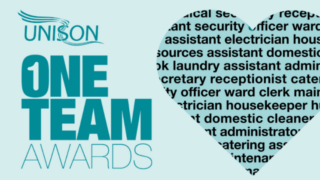Words: Stuart Tuckwood, national officer for nursing
As the NHS battles to reduce waiting lists and meet escalating demands, workplace stresses remain intense for staff. While there has been an increase in the number of nurses and healthcare assistants, domestically and from overseas, this does bring big challenges for teams in terms of the mix of skills.
UNISON, Nursing Times and the Florence Nightingale Foundation surveyed over 2,000 nurses for their views on preceptorship (mentoring) programmes. The results are encouraging and suggest big strides have been made in support for newly registered nurses.
However, there remain significant obstacles to ensuring all staff can access these high-quality programmes. Our earlier 2022 survey found a broad consensus on the importance of preceptorship, but that too few nurses were getting the right support when they qualified.
Survey results
There has been significant work trying to improve preceptorship in all parts of the UK since then and the latest survey results suggest this investment has paid dividends. The percentage of newly registered nurses who were offered a preceptorship in their first jobs is now at 93%, up from 83% in 2022.
Encouragingly, more than four in ten (45%) were likely to say their preceptorship was excellent, up from just over a fifth (23%) two years ago. Another positive development is the amount of protected time nurses have been given for their preceptorship.
In 2022, just under a third (32%) said they were given sufficient time, compared to three-fifths (59%) this year. The awareness of the importance of preceptorship has also grown. Four-fifths (81%) of nursing students now say they expect a preceptorship programme on qualifying, up from 62% in 2022.
But it’s not yet time to declare mission accomplished. Alarm bells continue to ring. A majority of respondents (89%) said workplace pressures were the main barrier to being able to access a preceptorship. Just a third of respondents (34%) said their organisation had sufficient experienced nurses and midwives to deliver them.
The harsh pressures on nurses
Comment after comment confirmed the harsh pressures new nurses face from day one. The survey teased out feelings of being overwhelmed and thrown in at the deep end, with many saying they didn’t think they would cope or felt unsupported.
At the other end of the career ladder, experienced nurses expressed concerns that they could not support their junior colleagues properly. Preceptorship is supposed to be focused on the needs of the individual nurse, yet many said that work is needed to develop bespoke programmes in different settings.
The NHS Long Term Workforce Plan makes clear that there needs to be a huge growth in the healthcare workforce over the next 10 years. Many nurses qualifying now will soon be the ones supporting junior colleagues and delivering expert care. They must be well supported.
Ultimately, policies and frameworks need resources to become a reality and make a difference. With an election on the horizon and huge organisational change happening in the NHS, the focus must be on building on the important steps already taken to support newly registered nurses.
- Article first published by Nursing Times








